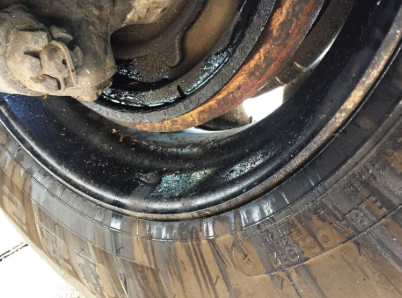The Role of a Residential Building Inspector: Ensuring Safe and Sound Homes
Purchasing, owning, or building a home is a significant milestone in life. It involves careful planning, decision-making, and a deep understanding of the condition and safety of the property involved. One essential figure in this process is the residential building inspector. Their role is crucial in evaluating the structural integrity and overall health of residential buildings—ensuring that homes are safe, compliant, and built to a reliable standard.
Whether it’s a newly constructed house, a decades-old property, or one undergoing renovation, a residential building inspection offers peace of mind by revealing details that are often hidden from everyday view. For homeowners and buyers in areas like Adelaide, where property markets are diverse and construction styles vary widely, the value of a residential building inspection in Adelaide cannot be overstated.
What Is a Residential Building Inspector?
A residential building inspector is a trained professional responsible for evaluating the condition of residential properties. Their inspections focus on identifying any issues that might affect the safety, structural integrity, or livability of a home. Inspections are commonly conducted before a home is bought or sold, during construction, or as part of routine maintenance.
While property appearances can be deceiving, a residential home inspector looks beneath the surface. They apply knowledge of construction standards, materials, and building codes to uncover hidden problems that the average person may overlook.
Why Residential Building Inspections Matter
Residential properties are subject to wear, environmental exposure, material degradation, and the effects of poor workmanship over time. Without a thorough inspection, these issues can go unnoticed—potentially resulting in safety hazards or expensive future repairs.
A residential building inspection helps in several key ways:
- Identifying structural issues such as foundation cracks, sagging roofs, or wall instability.
- Uncovering safety concerns like faulty wiring, gas leaks, or fire risks.
- Revealing moisture problems caused by poor drainage or plumbing leaks.
- Assessing the condition of roofing, ceilings, floors, doors, windows, and other structural elements.
- Providing a comprehensive picture of the home’s current condition and potential future concerns.
This thorough evaluation is valuable not only for buyers and sellers but also for homeowners planning renovations or maintenance.
Residential Building Inspections in Adelaide: Local Considerations
When it comes to residential building inspection in Adelaide, there are several regional factors that make these inspections particularly important. Adelaide’s housing stock ranges from classic stone cottages and 20th-century brick homes to modern suburban developments. Each type of home comes with its own unique set of risks and inspection priorities.
Adelaide’s Environmental Impact on Homes
- Soil Movement: Certain areas in and around Adelaide are known for reactive clay soils, which can cause foundation shifting and cracking.
- Damp Conditions: Older homes, especially in the inner suburbs, may be susceptible to rising damp and salt-related deterioration.
- Seasonal Extremes: South Australia’s hot summers and cooler winters can affect materials such as timber, roof tiles, and insulation if not properly maintained.
A residential building inspection Adelaide professionals perform will typically consider these local elements when conducting an evaluation, making their role even more valuable in the regional context.
What’s Included in a Residential Building Inspection?
A standard residential building inspection focuses on all accessible and visible components of the home. This non-invasive examination aims to identify defects or hazards that could impact safety, comfort, or compliance.
Areas Commonly Inspected:
- Structural Elements
- Foundations, walls, ceilings, floors, and framing
- Roof structure, including tiles or sheets, gutters, and downpipes
- Exterior Components
- Cladding, brickwork, balconies, stairs, handrails, and external doors
- Interior Elements
- Windows, doors, ceiling linings, wall finishes, flooring, cabinetry
- Plumbing & Drainage
- Taps, toilets, sinks, drainage flow, and visible pipework
- Electrical Systems
- Lights, power points, visible wiring, and general safety checks
- Ventilation & Insulation
- Roof space insulation, airflow in wet areas, potential condensation issues
- Site Considerations
- Driveways, fences, retaining walls, sheds, and any detached buildings
The goal is not to certify a home as “perfect,” but to give the owner or buyer a full understanding of its condition and any areas of concern.
When Should a Residential Home Inspection Be Conducted?
A residential home inspector can be engaged at various stages of the property lifecycle:
1. Before Buying a Home
Perhaps the most common time for a residential building inspection is before the purchase of a property. This helps buyers make informed decisions and potentially avoid hidden pitfalls.
2. Before Selling a Home
Sellers may also commission an inspection to identify and rectify issues before listing the property, thereby improving buyer confidence and speeding up the sales process.
3. During Construction
In the case of new homes, inspections at various construction stages (slab, frame, lock-up, and handover) help ensure that workmanship meets acceptable standards and building codes.
4. Before or After Renovations
Renovations can affect the structural integrity of a home. An inspection can identify whether post-renovation work is compliant and safe.
5. Routine Maintenance
Some homeowners choose to have inspections conducted periodically, especially in older properties, to monitor wear and detect early signs of deterioration.
The Value of a Professional Inspector
A residential building inspector brings technical knowledge and practical experience to each inspection. Their assessments are impartial and based on building standards, which ensures that the findings are reliable and useful.
Key Qualities of a Competent Inspector:
- Strong knowledge of local building codes and residential construction methods
- Attention to detail in identifying even minor or early-stage defects
- Clear, concise, and well-documented inspection reports
- Awareness of region-specific issues, such as those found in Adelaide’s housing stock
Their work helps ensure not only that homes are livable and safe, but also that property buyers or owners can plan intelligently for maintenance or improvements.
See Also: Lifeguard Classes: Building Discipline and Mastering Rescue Techniques
The Residential Building Inspection Report
Once the inspection is completed, the inspector provides a written report. This report is an essential tool, especially for buyers, homeowners, or property professionals looking to understand the true condition of a property.
What the Report Usually Includes:
- Summary of the property’s condition
- List of major and minor defects
- Photos of key areas or concerns
- Recommendations for repair or further evaluation
- Notes on any areas not accessible at the time of inspection
This document serves as both a record and a guide, helping clients prioritize necessary work or make informed choices about the property.
Residential Building Inspection in Adelaide: A Smart Investment in Property Health
The Adelaide property market is constantly evolving, with changing buyer expectations, building trends, and environmental challenges. This makes the role of a residential building inspector in Adelaide more important than ever. These inspections provide the clarity needed to understand whether a home is structurally sound, safe to inhabit, and aligned with legal standards.
From established suburbs with heritage homes to new residential estates on the city’s fringe, every home can benefit from a professional inspection. Informed decisions reduce the risk of long-term problems and help maintain property value over time.
Conclusion
The work of a residential building inspector is fundamental to the safety, functionality, and sustainability of residential homes. Whether it’s for a first-time buyer, a growing family, or a long-term investor, the insights gained from a residential building inspection are invaluable.
In Adelaide, where local housing challenges and climate considerations play a major role, a residential building inspection in Adelaide offers added assurance. It equips property stakeholders with the information they need to proceed with confidence—no matter where they are in their home ownership journey.
A professional inspection isn’t just a box to check—it’s a proactive decision to protect your investment, your safety, and your future.






